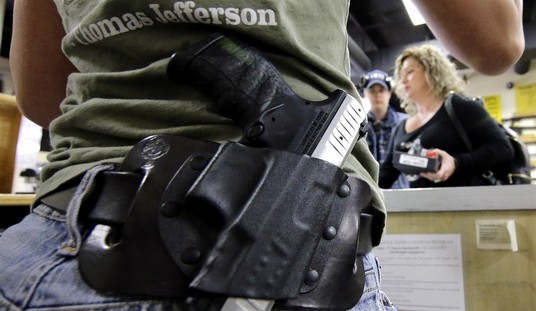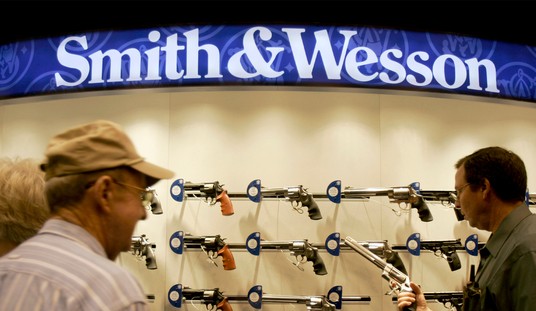The Louisiana Supreme Court has ruled that a 2012 revision to the state’s version of the right to keep and bear arms does not mean that juveniles (which they define as those younger than 17 years old) have a legal right to the possession or concealed concealed carry of handguns.
I doubt this surprises anyone:
Louisiana’s Supreme Court has upheld the state’s ban on possession of concealed handguns by juveniles, rejecting arguments that a constitutional amendment approved by voters in 2012 prohibits the Legislature from enacting concealed weapon laws.
Tuesday’s opinion written by Justice Marcus Clark said the amendment does not prohibit sensible firearms regulation and that “common sense, science and social science” all hold that possession of a handgun by a juvenile is dangerous to the public.
The 2012 amendment says that any gun restriction in state law must be subject to “strict scrutiny” by the court — meaning the state carries a heavy burden to prove the restriction is necessary to meet a government interest, such as public safety.
The decision came in the case of a juvenile identified only as J.M., who cited the amendment in arguing that the state could not judge him delinquent because he possessed a handgun in violation of state law.
There were no dissenters.
The Louisiana Constitution, amended in 2012, provides the following as the state’s right to keep and bear arms:
“The right of each citizen to keep and bear arms is fundamental and shall not be infringed. Any restriction on this right shall be subject to strict scrutiny.”
As I read the court’s decision [PDF], it was obvious that the Supreme Court recognizes the right of youths to possess and use handguns, in any number of legal contexts. Louisiana’s juveniles can use handguns while hunting or trapping, at ranges, at handgun and hunter safety classes, and on private property with the permission of parent or legal guardian and/or (if different) the landowner or lessee.
The court held that the ban on youths possession outside of these legal contexts—and in this specific instance, without any adult’s consent, and concealed—comport with strict scrutiny, something that our own Mike McDaniel has written about in his two-part series “The Limits of Liberty and the Law” (Part I, Part II).
The decision notes that the legislature was very precise with their language.
Based on the historical tradition restricting the possession of weapons by juveniles in Louisiana, the legislature could have instituted a total ban on a juvenile’s possession of a handgun. Instead, and in order to structure this legislation with precision, the legislature narrowly tailored the statute to provide exceptions for circumstances consistent with the possession or use of a handgun by a juvenile for a lawful purpose. A statute is narrowly tailored where, as here, it “actually advance[s] the interest asserted,” “is reasonably necessary to serve the state interest,” is not under- or over-inclusive, and no less “restrictive alternatives … would serve the compelling state interest at least as well.” Warner, 2005-1303, pp. 48-49; 21 So.3d at 253-254.
The statute restricts only the possession of a certain type of weapon, a handgun, which according to statistics and case law considered by the juvenile court is the most readily accessible type of weapon to juveniles, and is most often used in committing crimes. The prohibition targets only individuals aged 16 years and younger, consistent with the studies and case law showing this as the most vulnerable age group.
As advocates of the entire Constitution, I find the widening adoption of the strict scrutiny standard to be our best weapon against unconstitutional gun laws at every level, and think that the court (and the legislature) did a masterful job of balancing in this interests, and in such a way that even those of us without legal training can easily understand.








Join the conversation as a VIP Member